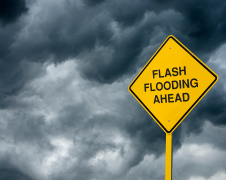Storms damage homes every year, and since 1980, the United States has endured over 370 weather incidents that have caused more than $2.6 trillion in damages to communities all over the country. There are myriad strategies homeowners can use to prepare their property to weather storms, potentially reducing damages and increasing safety for occupants. However, even when a disaster does impact a property, there are options for remediating the damage and restoring your home to a clean, safe, pre-disaster state.
Suggestions for Home Storm Readiness
Homeowners can use multiple methods to reduce storm damage risks to their property, including using sandbags to divert water from vulnerable entrances and ensuring that storm drains nearby are unclogged. The installation of smart water sensors that immediately alert homeowners to the presence of leakage can significantly reduce potential water damage. Securing outdoor items, like chairs or trash cans, can also reduce the potential for further home damage when severe storms include high winds.
Evacuation Prep and What to Do Upon Returning to the Property
Sometimes, the safest strategy is to evacuate when severe weather strikes. Where possible, try to evacuate before official evacuation orders are given. When traveling, make sure to keep emergency items on hand, including blankets, shelf-stable food, potable water, flashlights, and a NOAA radio to monitor weather conditions. After evacuation orders are lifted, take care when returning to the property, and avoid areas with standing water, especially near electrical components or downed power lines. Contact insurers as soon as possible and document whatever you can for your claim.
Lightspeed Restoration Can Remediate Severe Storm Damage
Lightspeed Restoration has the tools and techniques necessary to recover from storm damage. This process includes water extraction, sanitization, odor control, drying, and taking steps to prepare the space for repairs and renovation. This preparation ensures that affected structural materials, like soaked drywall and warped or damaged floors, can be restored effectively without compromising the property’s structural integrity. The inspection process, performed throughout mitigation, uses calibrated sensors and meters to assess the state of materials like wood, drywall, and carpet, as well as relative humidity in the air. This data is necessary to ensure that secondary damages do not occur during or after restoration.

Contact Lightspeed Restoration to restore your home to a safe, dry condition that is ready for any necessary repairs.